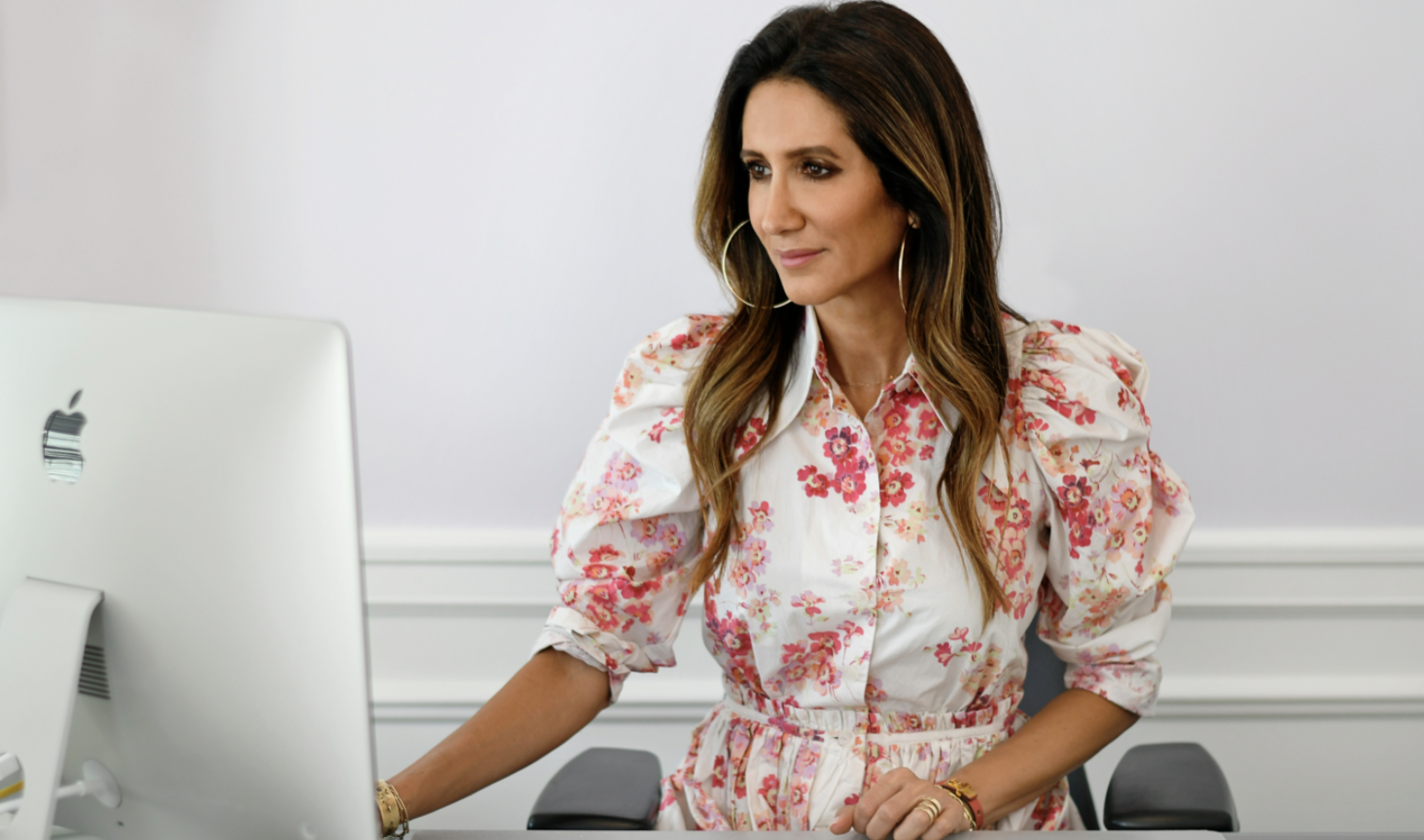Beauty...

By Mollysims.com
Episode #35 Have you ever DMed Molly asking what treatments and facials she loves? If so, this episode is for you. Today we sit down with one of Molly’s longest committed relationships & celebrity Dermatologist, Dr. Haleh Bakshandeh. We’re saying goodbye to hyperpigmentation and cystic acne, along with everything you need to know to prevent those stubborn dark spots. Dr. B is sharing her favorite in-house procedures and the beauty products that are really worth the splurge. We bond over our love of a great Vitamin C serum, while she shares her secret weapon – a drugstore foundation that won’t clog your pores.
Listen to the full episode here:
Molly begins the episode explaining how 2019 was the year of the skin for her. She was determined to get her skin back, as she suffered from cystic acne and hyperpigmentation. Dr. B was the woman who guided her along this journey.
Dr. B breaks down the difference between melasma and hyperpigmentation. “Melasma is due to hormones and commonly referred to as the pregnancy mask. You can also experience melasma from too much sun exposure. Hyperpigmentation comes from dealing with something that was inflammatory, pink, or red so like a zit or a bug bite. When it heals it has the potential to leave a dark spot behind. Both are very stubborn and respond to the same treatments.”
Molly asks Dr. B to explain why she doesn’t like using lasers to treat hyperpigmentation. Dr. B explains, “there are 3 pillars of melasma – hormones, heat, and sun exposure. Meaning melasma is triggered by heat, so you can treat with lasers, but lasers use heat which can cause those dark spots to come back with a vengeance later.” To treat and prevent melasma, “you really need to wear sunscreen, stay out of direct heat, and don’t take a hormonal contraceptive. Hormones are huge for stimulating melasma.”
“You really have to protect yourself from the sun. The 20 mins can really make a difference. I love mineral-based sunscreen because it acts as a sunblock instead of a sunscreen. You want to have zinc and titanium in your SPF. I don’t really care for chemical-based sunscreen because they actually absorb that heat energy, unlike a mineral-based sunscreen, and if you struggle with melasma the chemical-based sunscreen can trigger your dark spots.”
Emese asks Dr. B what SPF number we should be aiming for when choosing sunscreen. “Once you get past SPF 30 the increment between 30-50-100 is so small. An SPF 60 isn’t working twice as strong as an SPF 30. SPF 30 is the best.”
“The point of sunscreen is to not burn. Burning damages your DNA. Tanning will play to aging, but burning contributes to the potential for skin cancer.”
“To treat hyperpigmentation you can use Hydroquinone 2% over the counter, but you can get a higher percentage from dermatologists. Azelaic Acid is great for hyperpigmentation and acne.
I also love Kojic Acid is great as well. Hyperpigmentation won’t go away on its own, meaning you have to take actionable steps to remove it. Vitamin C is also amazing to treat Hyperpigmentation. One of my favorites would have to be the SkinCeuticals CE ferulic.”
“As for in-office procedures, chemical peels are great for getting rid of hyperpigmentation. A V peel and a Cosmelan peel are also great options. And then from there a great consistent skincare routine.”
Dr. B mentions that not all beauty products have to be expensive. She explains that it takes a lot of capital for these brands to produce efficacious products. But she will always encourage brands led by Dermatologists because that is what they do every day. She loves the Illuminé Eye Cream from Sente. She also loves to have products that contain Glycolic acid, Kojic acid, and Azelaic acid. Dr. B loves retinol but recommends, “a low and slow introduction to the ingredient. You should use retinol every 2-3 nights in the beginning.” She also describes how Tretinonion is a great ingredient to incorporate into your skincare routine.
“Sun Protection is key and needs to be a must in everyone’s skincare routine. Exfoliating is also very important. I love to use the Mild Fel Wash by Glytone to wash my skin and give a mild exfoliation because it contains Glycolic Acid. I also love the Brightneing Complex from Gyltone.”
“My favorite face cream is by Sente. I also love the Triple Lipid Moisturizer Skinceuticals You always have to remember that:
“All moisturizers are not created equal.”
“They can look the same, but there is technology in moisturizers. And more specifically in the way, it’s delivered. Some inexpensive good moisturizers are Lubriderm Intensive, Cerave, & Aveeno.”